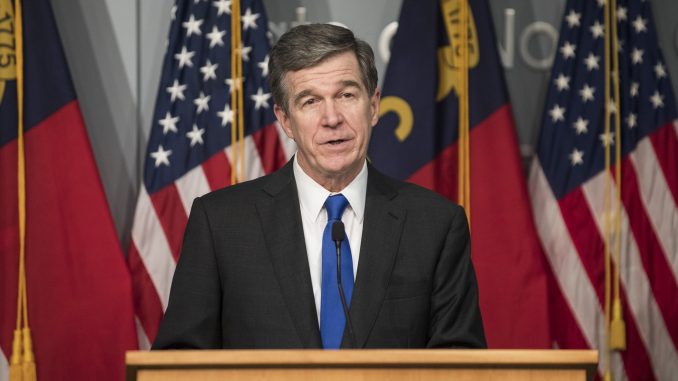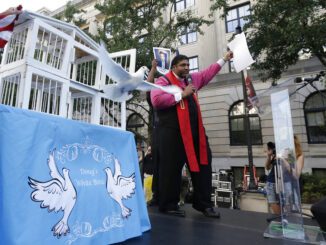
RALEIGH — The North Carolina General Assembly failed on Wednesday to override Democratic Gov. Roy Cooper’s veto of a measure that would have allowed gyms and bars to open again despite his executive order keeping them closed due to COVID-19.
Republicans in charge of the House were unsuccessful persuading enough Democratic colleagues to override the governor’s veto from last week. The bill would have allowed the fitness centers and bars shuttered since March to reopen at 50% capacity, with social distancing and cleaning mandates. Bars would have been allowed to serve only outdoors. It also would have expanded current outdoor seating for restaurants already partially reopened for sit-down service.
The override failure came on the same day Cooper claimed that rising virus-related case and hospitalization numbers warranted that the governor extend the bar and gym closures already in place until at least July 17.
“These numbers clearly tell us that we should not be moving forward with easing restrictions,” Cooper said at a media briefing before the override vote. His most recent order would have otherwise expired Friday. He said gyms would be on the list of businesses that could reopen next month if a statewide mask order he also announced Wednesday helps stabilize otherwise increasing case trends.
“We believe these numbers will level out and we can begin easing restrictions on these riskier businesses that right now have restrictions,” Cooper said.
Most retailers and restaurants in the state can already open at reduced capacity. Scores of gym owners and operators visited the Legislative Building earlier in the day urging legislators to complete the override. Some owners have said they may have to permanently close.
“These small businesses are pleading for help,” said Rep. Kyle Hall, a Stokes County Republican. “These folks are days away from losing everything. … The governor is picking winners and losers at the expense of people’s livelihoods.” The 66-53 override vote margin was several votes short of completion. The Senate also would have had to vote to override to make the bill law.
A coalition of fitness center operators said it was disappointed with the vote. “Every day gyms are closed is another day our hard-working employees are out of work and health club members are deprived of their workout routines,” Fitness Operators for Responsible Reopening said in a news release.
Two weeks ago, Cooper vetoed a bill containing help for bars and restaurants. The bill addressed Wednesday had offered the governor the authority to still shut down the bars and gyms under his emergency powers, but only with the agreement of the Council of State, composed of the 10 elected executive branch officials. Republicans currently hold a majority of council seats.
GOP legislators unhappy with Cooper’s orders also have sent to his desk measures that would reopen skating rinks, bowling alleys, amusement parks, wedding reception venues and fairs and carnivals.
The override vote came the same day as lawmakers tried to finalize several virus-related spending and policy measures as the annual legislative session neared its conclusion, possibly ending on Thursday.
Along party lines, the House gave tentative approval Wednesday night to a broader GOP measure that would require Cooper and future governors to get support from a majority of Council of State members before issuing a statewide emergency declaration beyond 30 days. The council also would have to sign off on Cooper’s administration closing categories of businesses — a point of contention with Republican council members during the pandemic.
The Senate also voted to allocate more of the $3.5 billion that North Carolina received from Congress for COVID-19 relief should be distributed. About $1.6 billion already has been distributed through legislation approved in early May. The total is increased to $2.1 billion in the measure.
The bill, which still must get House approval, follows through on doubling the federal money going to local governments to $300 million, with municipalities getting $75 million of the total. There’s $120 million going to match other federal emergency funds, $15 million for business and nonprofits that have kept most of their workers employed during the pandemic and $10 million to help struggling small meat processors.



